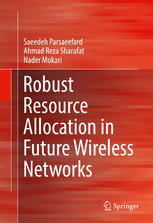

Most ebook files are in PDF format, so you can easily read them using various software such as Foxit Reader or directly on the Google Chrome browser.
Some ebook files are released by publishers in other formats such as .awz, .mobi, .epub, .fb2, etc. You may need to install specific software to read these formats on mobile/PC, such as Calibre.
Please read the tutorial at this link: https://ebookbell.com/faq
We offer FREE conversion to the popular formats you request; however, this may take some time. Therefore, right after payment, please email us, and we will try to provide the service as quickly as possible.
For some exceptional file formats or broken links (if any), please refrain from opening any disputes. Instead, email us first, and we will try to assist within a maximum of 6 hours.
EbookBell Team

5.0
98 reviewsThis book presents state-of-the-art research on robust resource allocation in current and future wireless networks. The authors describe the nominal resource allocation problems in wireless networks and explain why introducing robustness in such networks is desirable. Then, depending on the objectives of the problem, namely maximizing the social utility or the per-user utility, cooperative or competitive approaches are explained and their corresponding robust problems are considered in detail. For each approach, the costs and benefits of robust schemes are discussed and the algorithms for reducing their costs and improving their benefits are presented. Considering the fact that such problems are inherently non-convex and intractable, a taxonomy of different relaxation techniques is presented, and applications of such techniques are shown via several examples throughout the book. Finally, the authors argue that resource allocation continues to be an important issue in future wireless networks, and propose specific problems for future research.